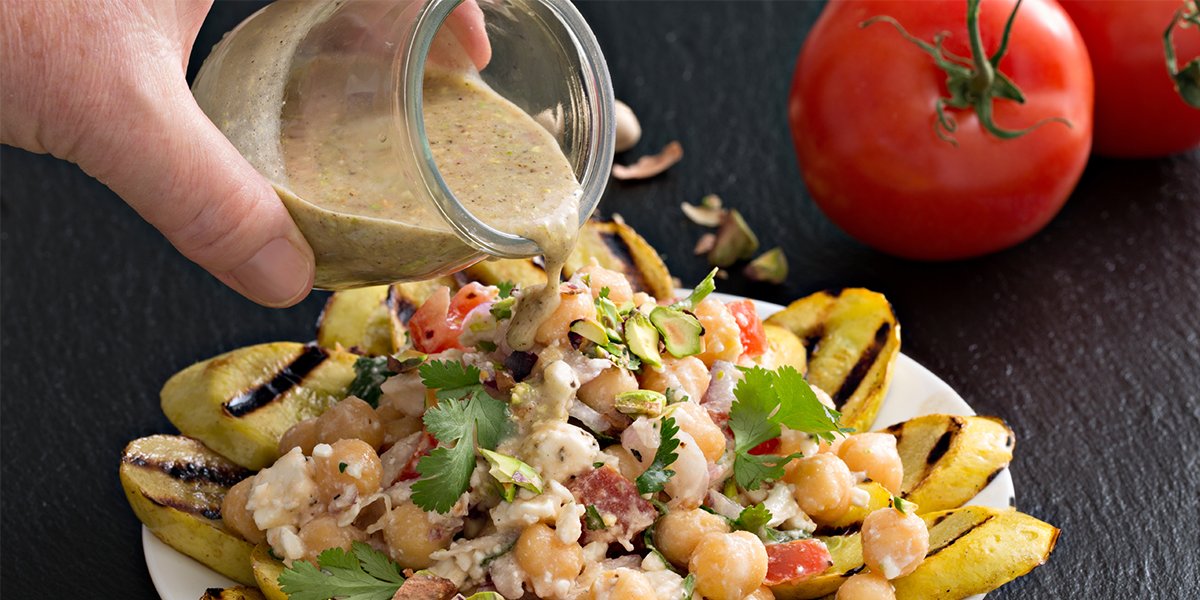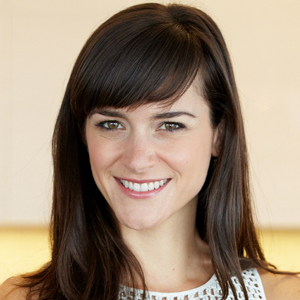When I was a teenager salad dressing was the enemy.
Sure I knew salads were the best choice for losing weight. But dressing, that evil temptress, tried her best to undo all the pain and suffering I just knew was necessary to get the body I wanted.
I remember once getting into an argument with my dad (the poor man had endured years of my refusing even a drop of fat on anything I ate).
He had made a substantial (and delicious) Cobb salad for dinner, and was offering me a bottle of low-fat ranch dressing to top it off.
I self-righteously retorted, “Salad dressing defeats the purpose of eating a salad.”
Trending: Navy SEAL Secrets for High Performance Under Pressure
“No it doesn’t,” he explained with exasperation. “The purpose of eating a salad is to get your vegetables and leafy greens in for the day.”
Clearly we were speaking different languages.
I ignored his offering and forced down an enormous bowl of lettuce, egg whites, and non-fat ham. My dad took his salad and his dressing, and we went our separate ways.
In retrospect, neither of us were eating particularly healthfully or particularly unhealthfully. Sure we were eating salad, but we were also both observing the insane nutritional recommendations of the time to different degrees. Seriously, WTF is non-fat ham?
But clearly my dad understood something that I didn’t. That fat content wasn’t the only thing to consider when choosing food. That nutrition––and god forbid, taste––were also important.
I cringe when I think back to how Draconian I was about weight loss advice that has now been so thoroughly debunked. Not that 15-year old Darya stood a chance against dieting industry logic, but it is still painful to think about.
Trending: How to Make Menopause the Best Time of Your Life
Yet even though that was 20 years ago, to this day I see self-proclaimed health conscious people throwing low-fat bottled salad dressing into their shopping carts and demurely asking for the real stuff “on the side.”
Please stop.
Salad dressing isn’t fattening or unhealthy. Yes it has calories, but you’re eating a freaking salad. You need some calories on there somewhere.
Having a bit of oil on your salad isn’t just acceptable, it’s actually healthier. The bioavailability (i.e. how much of a particular nutrient you can absorb from your food) of several vitamins, particularly carotenoids, are significantly increased in the presence of full-fat salad dressing, as opposed to reduced-fat or non-fat dressings.
Is it a coincidence that the way raw vegetables have been eaten for hundreds (maybe thousands) of years is the healthiest? Maybe. But it doesn’t really matter.
A fresh salad is delicious, and dressing makes it even better. Don’t serve it on the side, spend some time tossing it in a large bowl to be sure that every piece gets coated.
Trending: Microsoft, Google, and Beyond: What Business at the Cutting-Edge of AI Looks Like
If you want it to be even healthier, stop buying the bottled stuff and make your own. It takes about two minutes and tastes worlds better. (You’ll also save money).
Remember that you need to enjoy the salads you eat if you want it to become a habit. That’s reason enough to make salad dressing your friend.
A version of this article originally appeared on Darya Rose’s website, Summer Tomato.






























